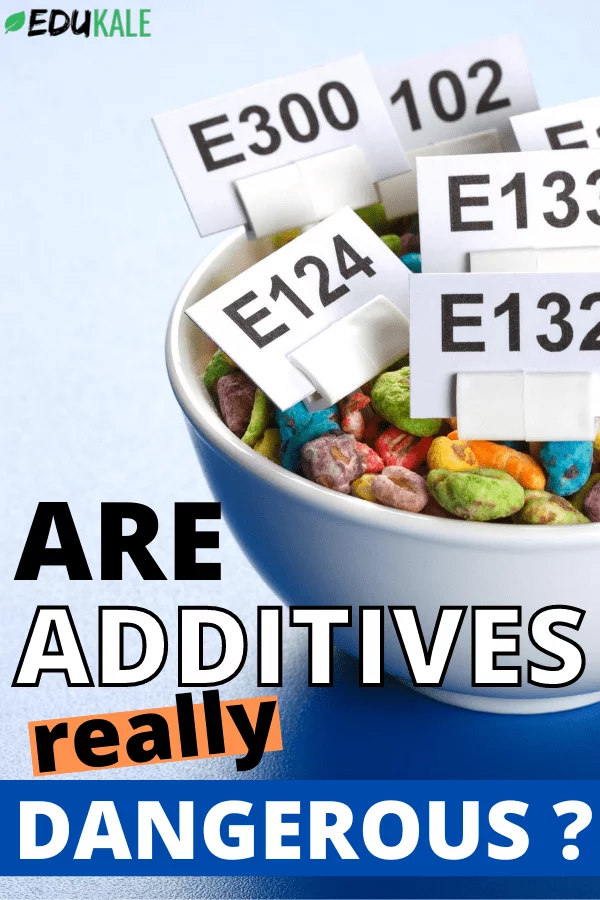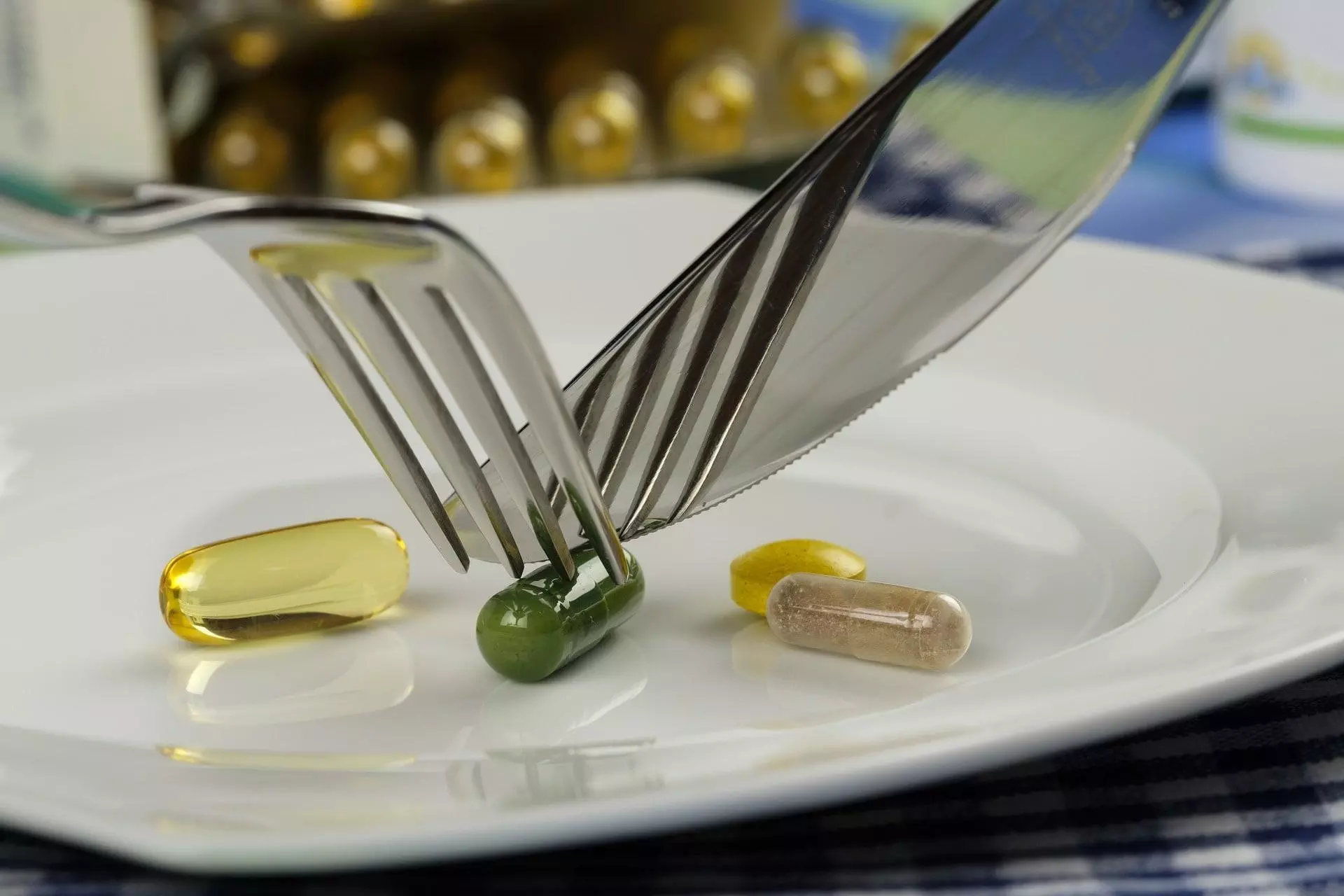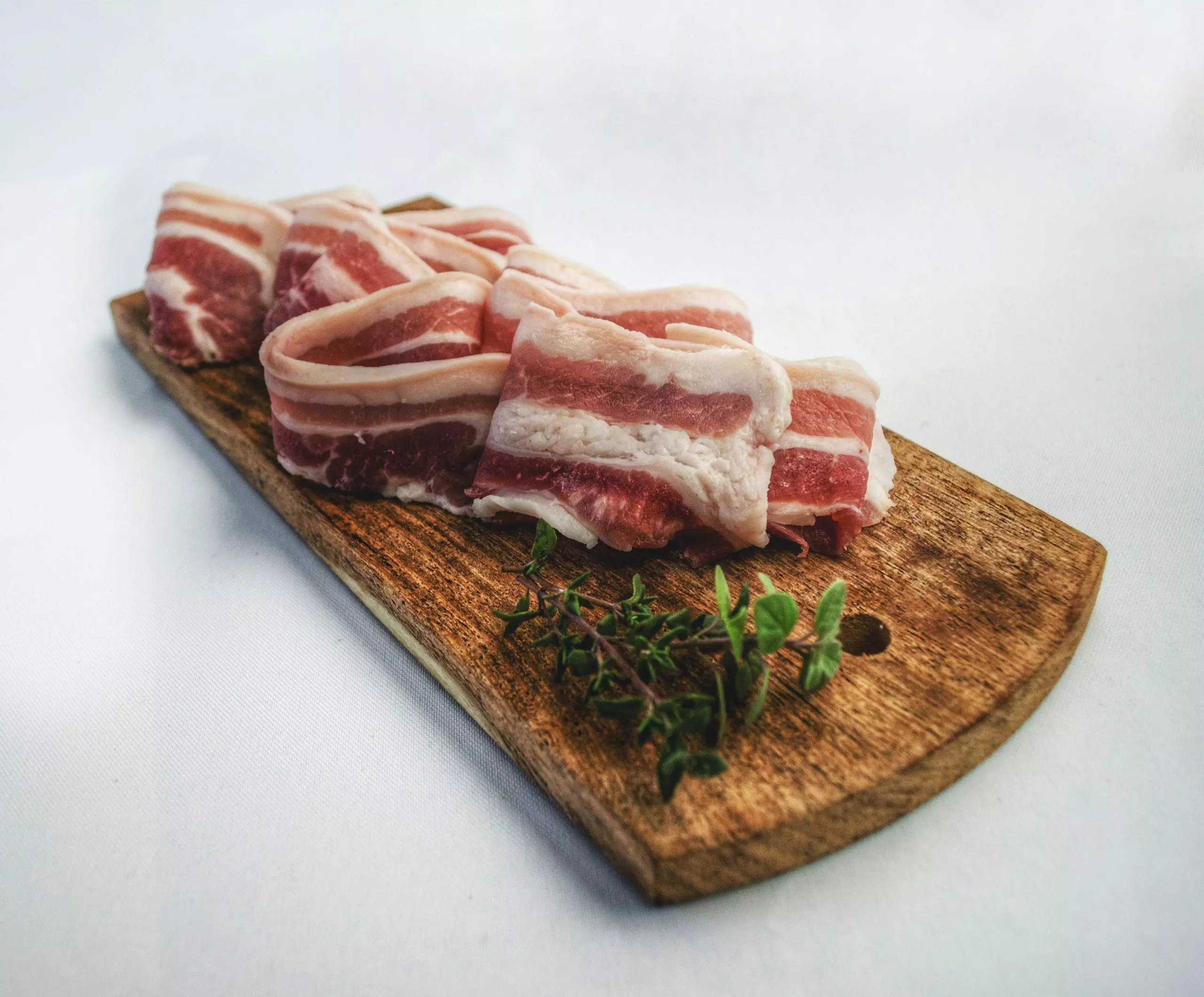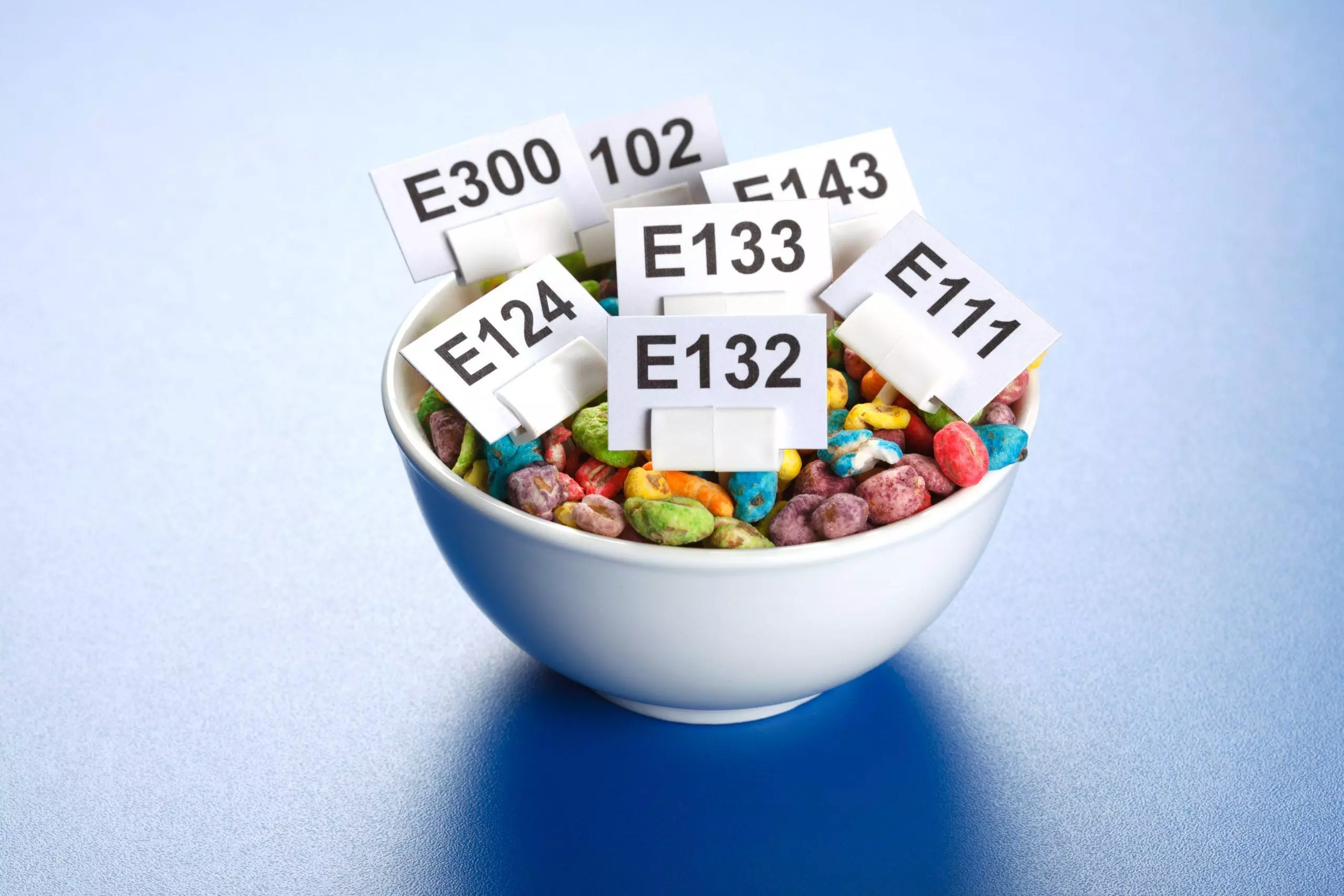This post contains affiliate links from which I may receive a small commission, at no extra cost to you. In no way does this affect my opinion or the information I provide on the product. Please read my disclaimer for more info.
“If there’s anything you can’t pronounce on your food label, then it shouldn’t be going into your body!”
I’m sure many of you have heard this phrase before— but is it actually that simple?
Well, the truth is, not really.
First of all, there are tons of natural ingredients with “unpronounceable scientific names”. For instance, dihydrogen monoxide, hydric acid, or oxidane all just mean water. Sodium chloride is salt. Citric acid is naturally found in certain fruits.
Secondly, even if the ingredients aren’t all-natural, are preservatives and additives really as bad as they seem? Should they be avoided at all costs?
Here’s the truth on additives and preservatives, and how bad they actually are.

What are additives and preservatives?
- Additives are compounds used to enhance the flavor, change the color, or improve the texture or appearance of a food product [1].
- Preservatives are compounds used to limit the growth of microbes on food in order to make the product last longer and prevent the food from spoiling.
They are added to food items in order to give it certain beneficial properties, whether it be to preserve it, enhance the taste, add nutritional properties, transport it more easily…
They’re all required to be safe for consumption by the FDA and their authorized amounts in food are limited, but that doesn’t mean you shouldn’t be careful [2].

Are preservatives and additives bad for you?
As with most nutrition things, the answer isn’t black or white. While some additives are banned because they’re just too harmful, others are deemed completely safe. In addition, some of them are still authorized but raise controversy.
Here are a few bad preservatives and additives to avoid:
- Monosodium glutamate, or MSG, is an additive used to intensify and enhance the flavor of savory dishes. It’s often found in ready meals (frozen, canned, salty snacks, etc.) Studies differ regarding its risks: some have associated MSG with being overweight [3], while others haven’t [4].
Some animal studies show that it has harmful neurological effects [5], but others say that MSG doesn’t cross the blood-brain barrier in humans [6]. Other studies report MSG as a threat to public health [7].
- Sodium nitrate is often found in processed meats such as bacon, hot dogs, ham… You can also find it naturally in plants, but high levels of it can cause some issues. It’s been linked to gastric cancer [8] and other diseases.
- BHA (and BHT) are petroleum-derived antioxidants used to preserve fat. They are found in potato chips, crackers, processed meats, dessert mixes…Animal studies show that they are carcinogenic: they promote the growth of tumors [9,10].

- High-fructose corn syrup, or HFCS, is an artificial sugar found in a ton of different processed food items: snacks, cereal, candy, soda…While natural fructose from fruit is healthy, HFCS is a risk factor for metabolic alterations. It’s been linked to weight gain, diabetes, an increase in blood sugar levels, inflammation, and more.
- Certain food dyes, such as red, yellow, and blue, raise health concerns. They are found in candy, snacks, jellies, sodas… Some of them cause cancer in animals, others are contaminated with dangerous compounds, some cause hypersensitivity reactions, others are linked with ADHD….[11,12] many of them have been banned, but be wary of those that still remain.
- Aspartame is a calorie-free artificial sweetener found in diet soda and other sugar-free foods. While some people think that’s it’s healthier than sugar, this is not true. It can lead to weight gain, headaches, diabetes, and bad gut health.
Here are a few safer preservatives and additives:
- Vitamins, such as vitamin C (or ascorbic acid), vitamin E (or tocopherols), vitamin B2 (or riboflavin), and vitamin B12 are added to food to prevent spoiling, help keep it fresh, or fortify it.
- Lecithin is an emulsifier found naturally in eggs and soybeans. Emulsifiers stabilize a water-oil blend (like in mayonnaise) so that your food doesn’t separate into different parts over time. While some studies show that other emulsifiers may cause gut inflammation and alter gut-health [13], lecithin actually has some benefits [14].
- Guar gum and xantham gum are used as thickeners and stabilizers and are found in salad dressings, soups, sauces…They’ve actually been associated with certain benefits [15,16]. However, consumed in excess, they may have some adverse effects [17], but their quantities in food are limited.
- Citric acid, acetic acid, and sorbic acid: While the word “acid” may seem scary, they’re actually harmless (when you don’t go overboard, of course) acidity regulators and help preserve ingredients. You can naturally find citric acid in fruit, acetic acid in vinegar, and sorbic acid in unripe berries [18,19,20].
These were just a few of the most common additives and preservatives to get you started, but there are hundreds more! You can find a list of the approved additives and their E numbers here.

So should you still eat foods with preservatives and additives?
As with most things, it’s all about balance. It’s good to be aware of the additives and preservatives that are bad for you and avoid them as much as possible. When you can, check the label and don’t buy the product when it contains one of the “bad” additives.
However, it’s super important to keep a few things in mind. One, you won’t always be able to check the label, and that’s okay.
For instance, when eating out, focus on enjoying your meal instead of obsessing over what bad preservatives might be in it. Consuming these things once in a while is totally fine.
Secondly, not all complicated words are bad additives. Some additives are completely safe, and some are even natural.
Finally, unless you’re solely eating fresh fruit and veggies from your garden, you’re bound to consume additives to some degree— and that’s fine!
Of course, in a perfect world, eating food devoid of any additives— even the safe ones— would be ideal, but that’s just not reality. In our society, additives and preservatives actually serve a purpose: they prevent food from spoiling, enhance the taste, add missing nutrients…[21]
As long as you’re eating mostly whole foods, making home-cooked meals, and checking food labels when possible, you have nothing to worry about!
-Lucie

